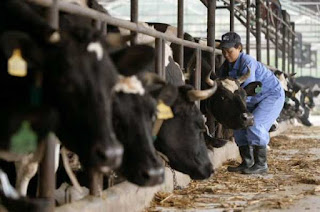Laws are un-Australian
The backyard barbecue is an Australian icon. Chops, burgers, and snags in bread are things for all family celebrations. New tough laws restricting smoke are to be introduced in Tasmania. A maximum of $16,000 fine with be given for barbecue cooking - unlawful.
People face a draft of laws anti smoke laws by the Tasmanian Government allowing fewer landholders to to light wood heaters and vegetation. Good for greenies perhaps. But barbecues will also be covered and Tasmanians will be fined for smoke emission.
The Environmental Protection Authority site show it will be unlawful for barbecues to give off smoke if:
(1) A fireplace, cooking appliance and outdoor heating cannot cause or allow smoke to be emitted by a person.
(a) Should not seen for a period of time exceeding 10 minutes;
(b) During the period of 10 minutes it cannot be seen for longer than a duration os 30 seconds
(i) No smoke is allowed to a distance of 10 metres from a building point, emitted from a fireplace or heating appliance inside a building
(ii) When the cooking appliance, outdoor heating, or heating appliance is situated outside of a building or part of, the limit distance is 10 metres from the source of emitted smoke.
So it is unlawful for barbecue smoke to emit smoke for a distance of 10 metres or continuously for 30 seconds.
Oppinons on the new draft laws can be put in writing and sent to enquiries@epa.tas.gov.au by the Tasmanian public by August 17.
Environmental Policy and Support Services
EPA Tasmania
Department of Primary Industries, Parks, Water and Environment
GPO Box 1751
Hobart, TAS 7001
~ barbecuing, cook, cooking, steak, pork, beef, outdoors, backyards, carbon, gas,
| ★ images ★










